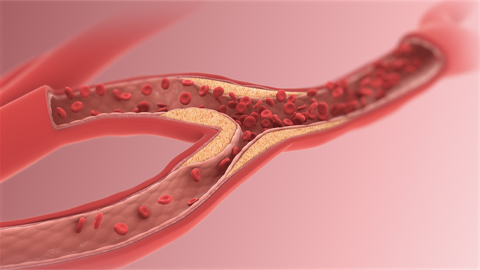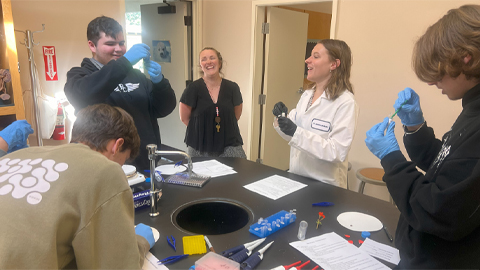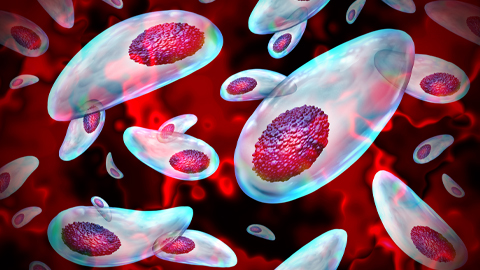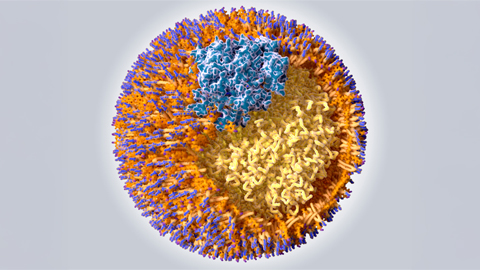Analyzing triglycerides in Americans of African ancestry
When genetic and environmental factors combine to cause high levels of fats, known as triglycerides, in the bloodstream, this is called hypertriglyceridemia. Researchers predict the condition impacts over 25% of all American adults, but most attempts to determine its genetic contributors have focused on patients of European ancestry, leaving research gaps for patients of other ethnicities.
High triglyceride levels increase the risk of cardiovascular and other diseases, including pancreatitis. Addressing underrepresentation among other racial and ethnic groups is essential to addressing inequities and improving diagnostics and health care.

A team of researchers in the medicine department at the Vanderbilt University Medical Center sought to address this knowledge gap by determining genetic risk factors for high triglyceride levels in American patients of African ancestry. Using the National Institutes of Health’s All Of Us database, they identified a cohort of patients based on ancestry, age and medical history, and grouped them based on hypertriglyceridemia severity.
The researchers searched for variants in genes involved in triglyceride metabolism and compared their occurrence in each of the groups. They used bioinformatics tools to predict which of these variants are likely to be functional, changing the protein product of the gene.
The team’s analyses confirmed that Americans of African ancestry with high triglyceride levels are more likely to carry certain genetic risk factors compared to those with normal levels. These factors include functional variants in regions encoding lipoprotein lipase, an essential enzyme in triglyceride breakdown, and apolipoprotein A5, a primary regulator of triglycerides in the blood, as well as other genetic factors.
According to QiPing Feng, an associate professor of medicine at Vanderbilt and corresponding author of the study, these findings, published recently in the Journal of Lipid Research, reinforce a genetic basis for hypertriglyceridemia.
“This will enable us both to identify patients at risk and to treat patients with high triglyceride levels to prevent cardiovascular disease,” Feng said.
The results are a crucial advance in hypertriglyceridemia research, but genetics do not seem to give the full picture.
“Even though we have screened several different categories of potential genetic factors, we still have around half of patients with high triglycerides for which we cannot identify any genetic factor,” Feng said.
This may be due to environmental factors such as stress.
The All Of Us depository includes genetic data, medical records and extensive questionnaires completed by patients. Feng’s team plans to use this data to research the contribution of environmental factors moving forward.
“We really appreciate both the program,” Feng said, “and the participants in All Of Us that agreed to donate their data for this kind of analysis.”
Enjoy reading ASBMB Today?
Become a member to receive the print edition four times a year and the digital edition monthly.
Learn moreGet the latest from ASBMB Today
Enter your email address, and we’ll send you a weekly email with recent articles, interviews and more.
Latest in Science
Science highlights or most popular articles

E-cigarettes drive irreversible lung damage via free radicals
E-cigarettes are often thought to be safer because they lack many of the carcinogens found in tobacco cigarettes. However, scientists recently found that exposure to e-cigarette vapor can cause severe, irreversible lung damage.

Using DNA barcodes to capture local biodiversity
Undergraduate at the University of California, Santa Barbara, leads citizen science initiative to engage the public in DNA barcoding to catalog local biodiversity, fostering community involvement in science.

Targeting Toxoplasma parasites and their protein accomplices
Researchers identify that a Toxoplasma gondii enzyme drives parasite's survival. Read more about this recent study from the Journal of Lipid Research.

Scavenger protein receptor aids the transport of lipoproteins
Scientists elucidated how two major splice variants of scavenger receptors affect cellular localization in endothelial cells. Read more about this recent study from the Journal of Lipid Research.

Fat cells are a culprit in osteoporosis
Scientists reveal that lipid transfer from bone marrow adipocytes to osteoblasts impairs bone formation by downregulating osteogenic proteins and inducing ferroptosis. Read more about this recent study from the Journal of Lipid Research.

Unraveling oncogenesis: What makes cancer tick?
Learn about the ASBMB 2025 symposium on oncogenic hubs: chromatin regulatory and transcriptional complexes in cancer.

